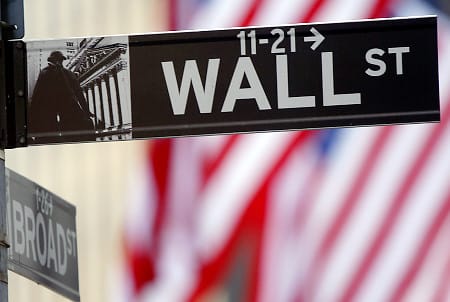\Too Big to Fail\ banks thrive, while small banks suffer


Since the late 2008/early 2009 crash, the nation's largest banks have experienced tremendous growth, reported substantial profits, and been able to pay back billions in TARP loans. On Main St, however, a far more sobering reality exists.
Effective unemployment has risen to 16.5%, foreclosures have skyrocketed, a record number of Americans are on food stamps, personal and corporate bankruptcies continue to explode, and over 250 small to medium sized banks have failed.
Now, Elizabeth Warren, Chairwoman of TARP's Congressional Oversight Panel, is reporting that small banks are barely treading water, while the gap between the "Too Big to Fail" and small-medium sized banks has widened even further since the economic crisis hit almost three years ago.
Antonia Oprita, of CNBC, writes:
"One in seven small banks that took TARP money has already missed a dividend payment, and fewer than 10 percent have repaid the amount back to taxpayers, a Congressional Oversight Panel report released Wednesday showed.
Small banks and big banks did not "look like each other" even before the need for the bailout and "in a post-TARP world, they look even less like each other," Warren said.
"I think that the problem is that small banks needed a different program… small banks serve an important function in this economy, they disproportionally are the banks that lend the money to small businesses," she said.
Warren estimated that 15 percent of the smaller banks cannot make the payments under TARP."
Warren's assessment is spot on. Since 2003, the five biggest banking institutions now hold 40% of the nation's deposits, compared to 24%. With billions in taxpayer dollars, Bank of America gobbled up Merrill Lynch, Wells Fargo acquired Wachovia, and JPMorgan Chase swallowed up Bear Stearns since the onset of the economic crisis.
But, while the behemoth banking institutions are relatively thriving, top industry analyst Meredith Whitney has predicted that as many as 1,000 small banks may end up going extinct over the next couple of years as stimulus runs dry and commercial real estate further deteriorates. Yet, these are the banks that are critical in providing small business loans, as Warren rightly points out.
The truth is, America's economic infrastructure and all-important banking sector have become grossly distorted since the $700 billion Wall St bailout. Main St is suffering, small banks are hanging on by a thread, and the big banks have engorged themselves on government favors, taxpayer money, and preferential treatment from the Federal Reserve.
Leading trends forecaster Gerald Celente really did sum it up best when describing the current state of affairs in America: Harvard, Princeton, Yale, Bullets, Bombs, and Banks. As he's said, Wall St. has hijacked D.C., the nation's "Too Big to Fails" have become a corporate oligopoly, and America's system of free-market capitalism has devolved into a form of fascism, defined as the merger of corporate and state interests.
Simply put, the numbers don't lie. TARP didn't loosen the credit market, jump start business lending, or rescue the "Little Guy". It simply rewarded reckless gambling and enriched the "biggest of the big".
And who do we have to thank for this current state of affairs?
None other than Obama, Bush, and the Republicrat corporatists in Congress.



